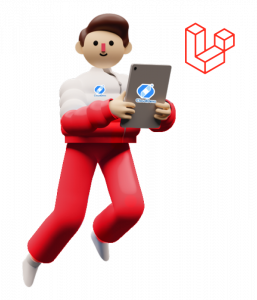What is CSRF protection in Laravel?
CSRF protection in Laravel is like having a security guard at the entrance of your web application, ensuring that only authorized users can access and interact with your forms and resources. CSRF stands for Cross-Site Request Forgery, a type of malicious attack where unauthorized commands are transmitted from a user that the web application trusts.
In simpler terms, CSRF protection is a security feature built into Laravel that helps prevent attackers from tricking users into performing unintended actions on your website. It works by generating a unique token for each user session and embedding it into HTML forms. When a user submits a form, Laravel verifies that the token matches the one generated for the session, ensuring that the request originated from your application and not from an external attacker.
To enable CSRF protection in Laravel, you don’t need to do much—Laravel handles it automatically for you. Under the hood, Laravel includes a middleware called VerifyCsrfToken that checks the CSRF token on every incoming POST, PUT, PATCH, and DELETE request. If the token doesn’t match or is missing, Laravel will reject the request and return an error response, protecting your application from CSRF attacks.
From a user’s perspective, CSRF protection is seamless and transparent—they won’t even notice it’s there. But behind the scenes, it plays a crucial role in safeguarding your application against potential security threats.
By default, Laravel includes CSRF tokens in all forms generated by the Form or Html helpers, making it easy to integrate CSRF protection into your application without any additional effort. However, if you’re building a single-page application (SPA) or consuming your API from a frontend framework like Vue.js or React, you’ll need to manually include the CSRF token in your requests to ensure protection.
CSRF protection in Laravel is a vital security feature that helps defend your application against unauthorized access and malicious attacks. By automatically generating and validating CSRF tokens, Laravel provides a robust defense mechanism that helps keep your users and data safe from harm. It’s like having a vigilant security guard protecting your web application 24/7, giving you peace of mind and confidence in the security of your code.





